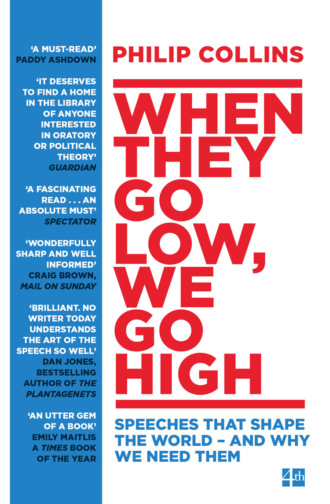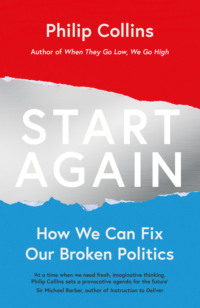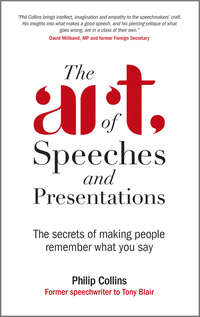
Полная версия
When They Go Low, We Go High: Speeches that shape the world – and why we need them
The line towards freedom is crooked, as we shall see. Nevertheless, the issues are smaller, the injustices largely less raw. The conflict between capitalism and communism pitted two sets of utopian aspirations against each other, with liberals and socialists everywhere painting the war of ideas in vivid colours. The victory of capitalism over socialist planning changed politics even in countries that had never been run by the communists. It meant that the left-of-centre parties largely accepted the writ of the market. The argument continued about where the lines of regulation should be drawn, but the dispute was now in the details, not the principles. At much the same time, the political Left won a cultural victory over the respect that was due to people of all creeds and colours. Each side, by and large, accepted the lesson it had been taught by the other, and the upshot was the creation of a new, benign, largely liberal consensus.
This means that public speech that truly sings is harder to pull off. Rhetoric, like all drama, needs a dispute. Agreement writes white, as Montherlant said about happiness. Politics, though, has to go on and this explains the rather exaggerated, overwrought nature of rhetoric today. No politician ever gets into office by volubly agreeing with his opponents. The political dispute therefore carries on regardless, as if there were no consensus. Public speech is easily reduced to an exercise in caricature, confected and boring, with the volume set too high. Amid this vast ado about nothing, it is little wonder that a decline in the standard of rhetoric is declared. But it is an illusion, and if public speech is boring the proper response is to be thankful. There are plenty of examples of shining speech in this book given during times when politics was far from boring and some of it was terrifying.
There is, though, still a reasonable complaint here. Language in the public square today does not always rise to the occasion. Too little of what is said in politics is memorable. It needs to be. Politics is the best idea about government that anybody ever had, or ever will have. Words need to inspire because disenchantment with politics fosters the illusion that there is an alternative. It is certainly still possible to write well rather than badly. The Obamas, Barack and Michelle, have shown that it is still possible to go high when everyone else is going low. It is still possible, as Mark Twain put it, to apply ‘a minimum of sound to a maximum of sense’. The aim of good public speaking is to borrow the rhythms of everyday speech but at the same time to heighten its effects. The objective is to write high-octane ordinary speech, as if an eloquent person were speaking naturally at their best, fluent and uninterrupted, with all the connecting threads edited away.
The greatest speeches are essays in simple language, easily comprehensible to a democratic audience, but works of beauty and profundity all the same. As a collection, the finest public speeches tell the story of the unfolding of human accomplishment through politics. This book is not a story of human progress in the manner of the old Whig theory, in which history moves serenely from darkness towards the light. There have been too many desperate times. But to the extent that there has been progress in the material conditions of life, as unquestionably there has, that progress is owed to political argument that began with the Funeral Oration of Pericles and continues to this day.
That is the spirit, and the thesis, of this book, which defines five political virtues and applauds the greatest words that have been spoken in their defence. The first political virtue is that through politics the voice of the people is heard. The second is that politics commits us to persuasion rather than force. The third virtue is that through politics the demand for recognition can be heard. Fourth, the equal consideration of all citizens in free societies is the means by which the material condition of the population is improved. Then, fifth, perhaps the most profound point of all: it is only when politics prevails that the worst of human instincts can be tamed. All of these virtues require poetic political speech.
The Quarrel with Ourselves
William Butler Yeats once said that poetry was made out of a quarrel with ourselves whereas rhetoric derived from the quarrel with others. It can, alas, be more than a quarrel. We now face new threats to the liberal democratic order, from both without and within. In the wealthy democracies today an insidious lack of confidence has set in. Conspiracy theories have flourished and people are tempted towards fringe candidates. This lack of confidence in democracy is misplaced and dangerous. Cynicism with politics is everywhere and it is everywhere nihilistic.
The history of fine speech is proof against cynicism of this kind. Public speech can be elevated and it can still be uplifting. It needs to be because it is in the spoken word that the defence of politics has to be conducted. The final speech in this book tells the most heartbreaking story of the modern age. ‘Not far from Goethe’s beloved Weimar, in a place of eternal infamy called Buchenwald’, says Elie Wiesel, the worst of instincts was let loose. Politics is the human achievement that prevents a repetition of terrors such as this. The title of Elie Wiesel’s great speech is a reminder to us all of the perils of indifference. We can compose a funeral oration for politics if we choose. Or we can fight back.
This book exhibits the examples that we can choose to follow. By explaining what the great speakers meant and how they said it, I hope to elucidate the principles through which good politics can be conducted. All we have at our disposal are beautiful words, but what a weapon to hold. Stirring words in a skilled arrangement are all the power we need. The question for us now, when confidence in politics and democratic process is low, is not whether good things are still being said. Good things are still being said. The question is whether we are still listening.
Конец ознакомительного фрагмента.
Текст предоставлен ООО «ЛитРес».
Прочитайте эту книгу целиком, купив полную легальную версию на ЛитРес.
Безопасно оплатить книгу можно банковской картой Visa, MasterCard, Maestro, со счета мобильного телефона, с платежного терминала, в салоне МТС или Связной, через PayPal, WebMoney, Яндекс.Деньги, QIWI Кошелек, бонусными картами или другим удобным Вам способом.






